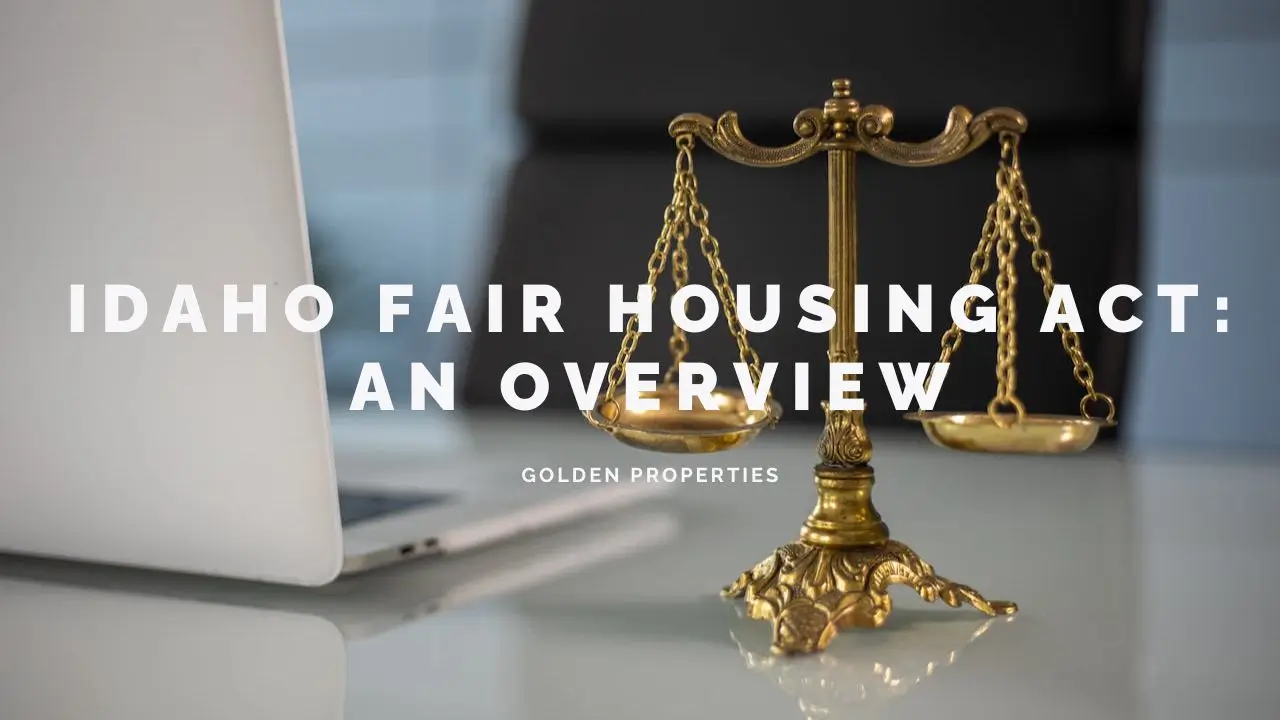Key Takeaways
Understand Fair Housing Laws: Landlords in Idaho must comply with the Fair Housing Act, which prohibits discrimination based on protected characteristics such as race, disability, and religion.
Ensure Consistent Policies: Using standardized application procedures, lease agreements, and pricing practices helps prevent unintentional discrimination.
Avoid Discriminatory Practices: Landlords should be mindful of language in advertisements, selection criteria, and accessibility requirements to maintain compliance and avoid legal issues.
Are you thinking about renting out a property in Idaho? It could be the key to financial stability! A rental property allows you to earn a steady income while also helping you grow your wealth and equity over the long term. The longer you hold onto the property, the more your money will grow.
However, before listing a property for rent, you should take the time to familiarize yourself with the local rental laws. Adhering to local and federal regulations ensures smooth operations, builds trust with tenants, and prevents costly legal disputes. However, many investors fail to comply with basic laws, such as the Fair Housing Act.
If you want to rent out a property in Idaho without worrying about legal liabilities, then keep reading! In this guide, the team at Golden Properties will go over everything you should know about the Fair Housing Act, including how to comply with it!
Understanding the Fair Housing Act
The Fair Housing Act was enacted by Congress in 1968 to give everyone an equal chance of buying or renting a property.

This federal law prohibits property owners from discriminating against renters and homebuyers based on the following protected characteristics:
- Race. Discrimination based on race is illegal, meaning that landlords cannot refuse to rent or impose different terms based on a tenant’s race.
- Color. Similar to race, color discrimination involves treating someone unfairly due to their skin tone or complexion.
- Religion. Housing providers cannot favor or exclude individuals based on religious beliefs or affiliations.
- Sex. This protection includes discrimination based on gender, as well as sexual harassment in housing. Some interpretations also include gender identity and sexual orientation.
- National Origin. Landlords cannot deny housing or impose stricter conditions based on a tenant’s country of origin, ethnicity, or native language.
- Disability. Individuals with physical or mental disabilities cannot be turned down due to their condition. Additionally, landlords must make reasonable accommodations for people with disabilities, such as allowing service animals despite pet policies or providing accessibility features.
- Familial Status. This protects families with children under 18, ensuring they are not denied housing or given different terms due to having kids.
The Fair Housing Act in Idaho
In Idaho, fair housing laws are enforced through the Idaho Human Rights Commission. State laws include only six of the seven federally protected classes, the exception being familial status.

Under the Fair Housing Act, property owners, managers, and real estate agents may not:
- Refuse to rent, sell, or deal with a person who is a member of any of the protected classes.
- Apply different policies, rules, or conditions to different tenants.
- State that housing is not available when it still is available.
- Refuse applications claiming the tenant would be a better fit elsewhere.
- Refuse to make reasonable accommodations for tenants with a disability, such as building a ramp to enter the property or installing grab bars in the bathrooms.
- Use a different selection process for different tenants.
- Restrict tenants’ choice of unit or neighborhood.
- Retaliate against tenants who’ve made fair housing complaints.
How to Ensure Compliance with the Fair Housing Act
Failure to comply with fair housing laws can lead to fines and legal disputes that can seriously damage your reputation as a landlord. Here are some best practices to help you ensure compliance when renting a property in Idaho:
Set Standard Application Policies
To avoid breaching the Fair Housing Act, you must treat all applicants the same way. The best way to ensure everyone gets a fair chance at renting your property is by setting a standard application procedure.
Avoid Discriminatory Wording in Advertisements
A listing that suggests a preference for or against certain groups goes against fair housing laws. So, make sure to avoid using phrasings such as “female only,” “empty nesters preferred,” “no [specific language] allowed,” or “must be employed.”
Maintain Consistent Pricing Practices
Giving different applicants a different rent price without a clear justification, such as property improvements, is considered a discriminatory practice.

This also applies to multi-family properties where units are similar. To ensure compliance with fair housing laws, pricing remains consistent for all tenants.
Set Objective Screening Requirements
As a landlord, you’re allowed to rent your property to whoever you see fit. However, biases and personal preferences can lead to discriminatory practices.
To avoid this, it’s best to compare applicants based on objective parameters, such as credit score, income, number of previous evictions, and references.
Use a Standard Lease Agreement
Another form of tenant discrimination is giving certain renters completely different policies, rules, and policies than others. To avoid this, all your leases should be consistent.
You can use a standard lease and tweak it to better fit the unique needs of your property and the new tenants.
Make the Property More Accessible
Unfortunately, most properties aren’t accessible to people with physical disabilities.
Investing in accessible upgrades, such as a ramp for the front door, wider doors for wheelchairs, and handles in the bathrooms, will not only help you comply with fair housing laws but will also make your property more appealing to a specific group of renters.
Document Everything
Being reported for having violated fair housing laws can have serious repercussions, including costly fines and lawsuits. To avoid this, it’s not only important to comply with local laws but also document your efforts from property inspections to storing the security deposit.

Keeping records of application forms, screening reports, and lease agreements will help you demonstrate compliance with fair housing laws in case a complaint ever arises.
Bottom Line
The goal of the Fair Housing Act is to provide both renters and buyers equal chances of finding appropriate housing. If you own a rental property in Idaho, it’s your responsibility to understand and abide by local fair housing laws.
You can do so by understanding the protected classes, avoiding using discriminatory language in advertisements, and keeping consistent policies for all tenants.
If you want to ensure your rental practices comply with Idaho’s fair housing laws, get in touch with our team at Golden Properties! We can help you ensure legal compliance and streamline the screening process.


